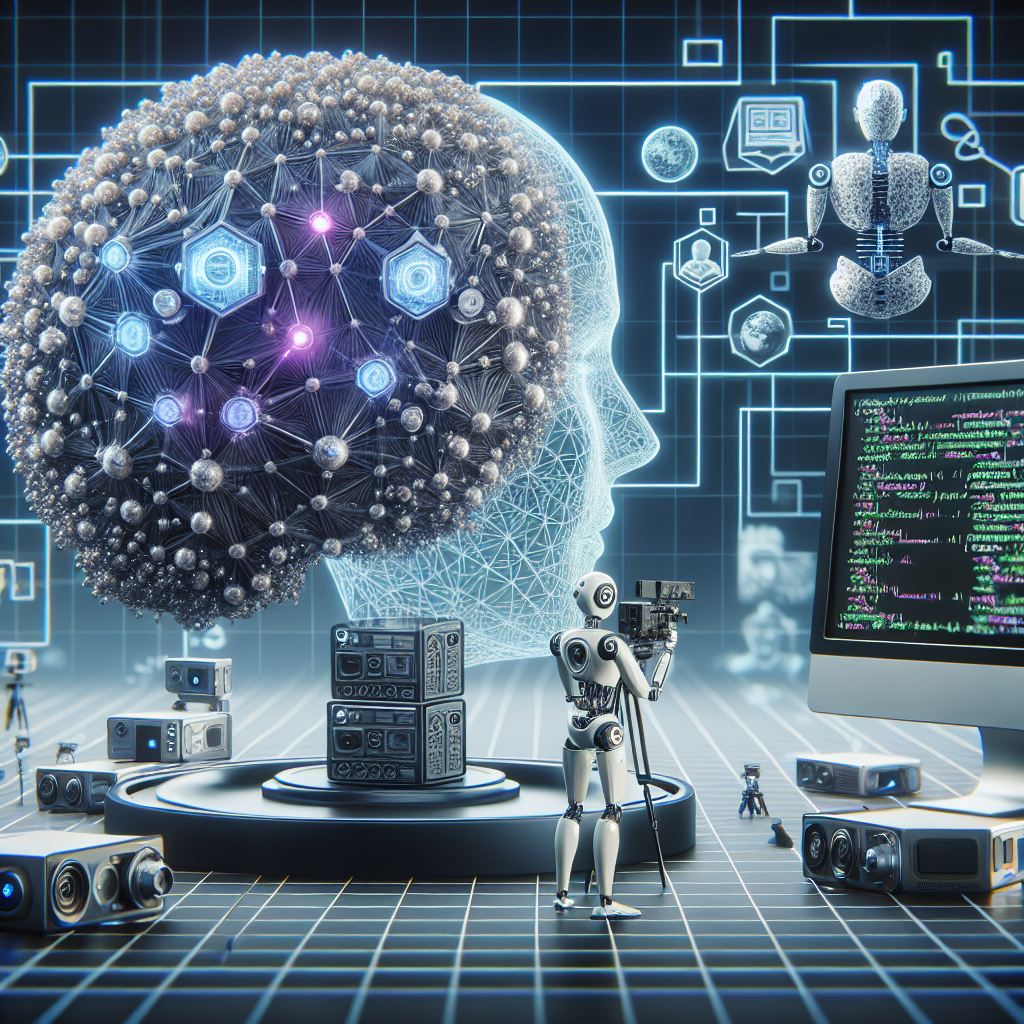In recent years, influencer marketing has become a powerful tool for brands looking to connect with their target audiences in a more authentic and engaging way. As social media platforms have grown in popularity, so too has the influence of individuals who have amassed large followings online. These influencers have the ability to sway the opinions and purchasing decisions of their followers, making them valuable partners for brands looking to reach a specific demographic.
One of the most recent developments in influencer marketing is the use of artificial intelligence (AI) to streamline and enhance the process of identifying, engaging, and measuring the effectiveness of influencer partnerships. AI has the potential to revolutionize the way brands approach influencer marketing, making it more efficient, cost-effective, and data-driven.
The Evolution of AI in Influencer Marketing
AI has transformed the influencer marketing landscape in several key ways:
1. Improved Targeting: AI algorithms can analyze vast amounts of data to identify the most relevant influencers for a brand’s target audience. By considering factors such as audience demographics, interests, and engagement rates, AI can help brands find influencers who are more likely to resonate with their target consumers.
2. Enhanced Engagement: AI-powered tools can automate the process of reaching out to influencers, negotiating partnerships, and coordinating campaigns. This saves brands time and resources, allowing them to focus on creating high-quality content and building relationships with influencers.
3. Performance Tracking: AI can track the performance of influencer campaigns in real-time, providing brands with valuable insights into the reach, engagement, and ROI of their partnerships. This data allows brands to optimize their campaigns on the fly, making adjustments based on what is working and what isn’t.
4. Content Creation: AI can also assist in the creation of content for influencer campaigns. From generating captions and hashtags to editing photos and videos, AI-powered tools can help influencers streamline their content creation process and deliver more engaging and visually appealing posts.
5. Fraud Detection: One of the biggest challenges in influencer marketing is the prevalence of fake followers and engagement. AI can help brands identify and avoid influencers who engage in fraudulent practices, ensuring that their partnerships are with authentic and trustworthy individuals.
FAQs
Q: How does AI determine which influencers are the best fit for a brand?
A: AI algorithms analyze a variety of factors, including audience demographics, interests, engagement rates, and past performance, to identify influencers who are likely to resonate with a brand’s target audience. By crunching numbers and data, AI can help brands find the most relevant influencers for their campaigns.
Q: Can AI help brands measure the success of their influencer campaigns?
A: Yes, AI can track the performance of influencer campaigns in real-time, providing brands with valuable insights into the reach, engagement, and ROI of their partnerships. This data allows brands to optimize their campaigns on the fly and make data-driven decisions about future partnerships.
Q: How can AI help brands avoid fake influencers?
A: AI can help brands detect and avoid influencers who engage in fraudulent practices, such as buying fake followers or engagement. By analyzing patterns in engagement and audience growth, AI can identify suspicious behavior and alert brands to potential fraud.
Q: Is AI replacing human involvement in influencer marketing?
A: While AI can streamline and enhance certain aspects of influencer marketing, it is not replacing human involvement entirely. Brands still need to develop creative strategies, build relationships with influencers, and monitor the success of their campaigns. AI is simply a tool that can help brands make more informed decisions and optimize their influencer partnerships.
In conclusion, the evolution of AI in influencer marketing is transforming the way brands approach partnerships with social media influencers. By leveraging AI-powered tools to improve targeting, engagement, performance tracking, content creation, and fraud detection, brands can run more effective and efficient influencer campaigns. As the technology continues to advance, we can expect to see even more innovation in the way brands collaborate with influencers to reach and engage their target audiences.

